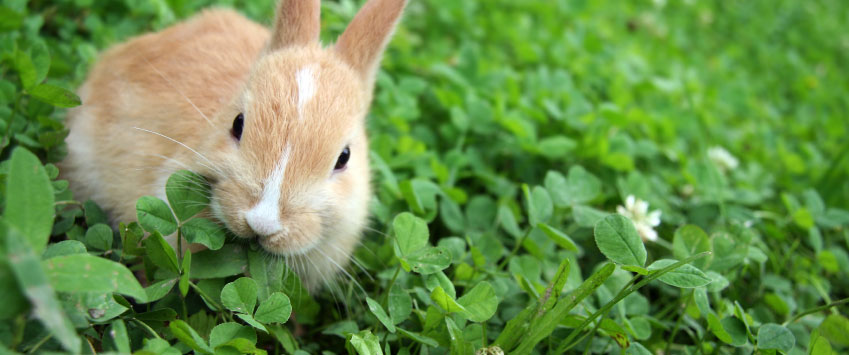Rabbits
Rabbits can make wonderful pets and are found in many Darwin homes.
Here are some important things you need to know about caring for your rabbit.

Vaccinations
The most common virus that affects rabbits is called calicivirus; a highly infectious and usually fatal disease that can affect both wild and domestic rabbits. The virus is spread through contact with infected animals or their faeces and urine, and it can also be carried on the wind.
Rabbits are vaccinated against calicivirus at 12 weeks of age, and then annually.
Worming and Parasites
Just like dogs and cats, rabbits can get fleas. While some general flea treatments are safe to use on rabbits, many are not. So, if you suspect your rabbit may have fleas, the best and safest thing to do is to bring it for us to check and prescribe a treatment that will be safe and effective.
De-sexing
Both male and female rabbits should be de-sexed, for both breeding and health reasons. As well as preventing pregnancy, de-sexing helps to reduce aggressive behaviour in both males and females. Female rabbits are prone to developing uterine cancer if they’re not de-sexed, and this is very common.
We recommend male rabbits are de-sexed at four to five months of age and females between six and nine months.
The de-sexing process
- Book an appointment; de-sexing procedures are performed Monday to Friday.
- Bring in your rabbit in the morning, and he’ll be ready to go home that afternoon. Rabbits should not be fasted prior to surgery; feed him his usual food and bring some in with him for feeding in hospital. We’ll give your rabbit a full examination prior to surgery.
- Our vets then perform the de-sexing surgery under general anaesthetic, which generally takes 15 minutes for males and 30 minutes for females.
- After surgery your rabbit is given good pain relief and monitored as he recovers in the clinic for the afternoon. When he’s up and awake, he can go home.
- In 12 days, bring him back and we’ll check to ensure the wound has healed and remove stitches if necessary.
Diet and Dental Care
A proper diet is extremely important for rabbits. Many health problems with rabbits result from a bad diet, particularly dental problems.
Grass hay is one of the most important components of a rabbit’s diet, and good quality grass hay should be provided at all times. Leafy green vegetables are also important. Fruits should only be fed in small quantities as treats and certain foods need to be avoided completely We can provide you with more detailed dietary advice. We commonly see rabbits with overgrown teeth or teeth that have worn incorrectly as a result of an inadequate diet.
We can treat many dental problems in rabbits with the same state-of-the-art equipment we use on cats and dogs.

